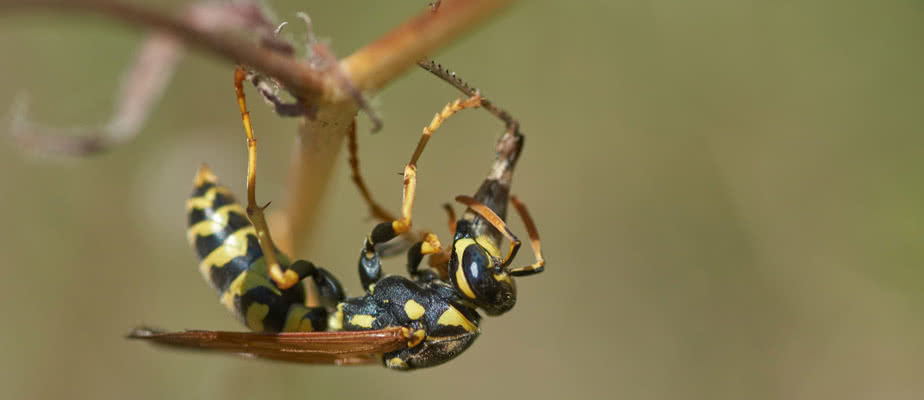Wasps and Hornets: They buzz around, can cause some people to do a crazy dance or suddenly have ninja moves when flying around them, and when threatened they can sting and cause major harm. In Oregon there are some main types of stinging insects we encounter:
-Yellow Jackets
-Bald Faced Hornets
-Paper Wasps
-Mud Dauber Wasps
Typically these pests are not attempting to get inside your home, but may make nests right outside in eaves, outdoor light fixtures, bushes, hanging from tree branches, and some may even be under ground with small exit holes. In some extreme cases they may even take up refuge inside of homes siding, in crawl spaces, and in attics. Hornets are the most aggressive, and can follow/target a person or pet from hundreds of feet, whereas the Mud Dauber, a solitary wasp, is more passive and is non-aggressive. The most common type of yellow jacket nest seen due to its protected nature, is a ground nest.
Some tips to reduce the chances of having nests near your home include hanging wasp traps that can be purchased at hardware stores far away from the home to help control the population of stinging insects nearby while also not attracting them too close to the home. Keeping the ground free of leaves, removing old decaying firewood, and fallen debris will also help to reduce an incoming queen from finding a nice place in the ground to call home.
Not sure how to get rid of your wasp or hornet issue? This is one particular type of pest we do not recommend any homeowner attempt on their own. Wasps and hornets have very painful stings, can swarm in a moments notice, and can cause serious injury and in rare cases, even death. It is also important to ensure that the issue you’re having isn’t that of a beneficial pollinator such as the honeybee, and bumblebee. Give Pest Plus a call today to get fast, efficient, and a stress free approach to the stinging insects around your home. We will come out to your home, identify the species, and be able to resolve the problem the same day so that you and your family can continue on without worry.
